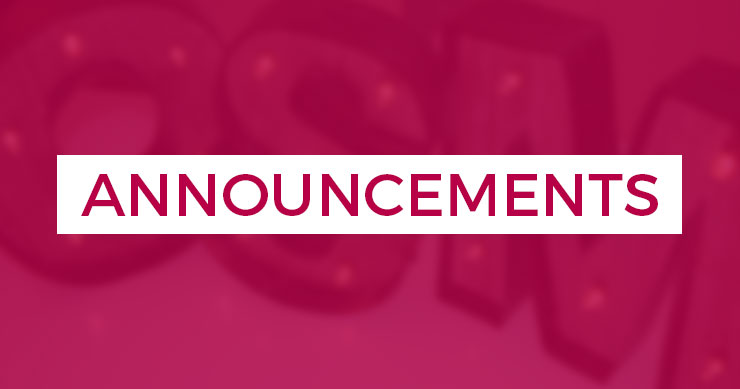 Well, we made it! It’s the final session of Affiliate Summit East and I can’t think of a better way to end it then with a presentation from social media golden boy (and fancy pants) Scott Stratten.
Well, we made it! It’s the final session of Affiliate Summit East and I can’t think of a better way to end it then with a presentation from social media golden boy (and fancy pants) Scott Stratten.
Scott’s been in NYC for two weeks. He’s staying in Chelsea market. On Saturday he was wondering what was up with all the tourists there. He’s been here two weeks and he’s already really bitter about people being in his city even though it’s not his city. Canadians are silly. And possessive. I know this through Rae. Wait…what?
Scott says there’s been a lot of talk about leads and ROI at the conference. What there hasn’t been is a lot of talk about people and relationships. Not in a we-are-the-world kind of way, but just recognizing that we are all human.
Oh, oh, Scott has rules for his presentation.
- Please turn your phone ON. He wants you to tweet about his talk.
- Keep the ringer on, ONLY if he likes the ring tone. If it’s Kesha/Tick Tock he will throw your phone.
- Tweet it up – @unmarketing. He’s going to change his legal name to @unmarketing since that’s how people know him now. #whitecollarproblems
Marketing is not a task. It’s not a department in your company. It’s not an action item in your list of To Dos. Marketing is every single time you interact, have a touch point, have a talk point with ANY audience. [He’s totally yelling. NYC has clearly made him anger] Every time you talk to someone it is marketing. That means every single person in your company is a marketer. Your audiene is no longer listening, they’re talking. Your audience has created the conversation now and your opnion is irrelevant.
If you believe that business is built on relationships, then making building them your business. People do business with people they know, like and trust. So what are you doing to increase those three things on a daily basis? What are you doing to increase those silos within your company, within your peers, within your industry, etc? The only way to grow an industry is to get outside of it.
He came from the viral marketing world. He was an affiliate before he knew he was an affiliate. The word affiliate is ridiculous. We don’t need that term. He started off 8 years ago making motivational videos (ouch) that you may have seen online. He’s made 70 of them…and he’s really, really sorry about that. He just said “FML” aloud. He’s one of THOSE people who speaks acronyms.
He wanted to see how may newsletters actually had news so he signed up for 40 random Internet marketing newsletters for 6 months. None of them had standalone content. This is why he hates people so much. There were no stories. People are dying inside when they read these things. Stop it. For the love of the world and kittens. You can’t call it a newsletter if your only news is “give me money”.
Viral marketing has changed. Not WHY we spread something around, but HOW we we spread something around. No one ever spreads mediocrity. No one ever rushes to read nothing. We spread GREAT content. He knows nothing about SEO except that the best SEO is to write great damn content (HOLLA!) That’s how it works. We’re so scared to do something that has content in it, that has value. Stop trying to trick people. People spread awesome.
Viral is not a verb. He is not Harry Potter and cannot “viral” your video. The audience chooses what to spread. The how they spread it is different from how we started. People share content within their circle. Its better for your video to be spread on someone else’s blog than on your own. Don’t try and hold on to it. Let it go. The shift has been so quick.
Social media success doesn’t exist. Social media does not make something successful. The content does, social media is the vehicle. If you suck, you just suck harder on social media. If you hate people, social media isn’t a good place to be.
There are so many choices, where the hell do we start? You can’t justify spending your whole day on twitter, blogging and YouTube (I CAN!). You have to build a platfrom. Choose which platform it’s going to be and then build it. His platform is Twitter because it’s the lowest barrier to entry and relationships. He didn’t want to have to accept you as a friend before he can talk to you because it’s awkward.
3 Stages of Platforming
- Traction: This is the hardest part because nothing happens. It’s when you tweet, get no response, and then double check to make sure your tweet went through.
- Momentum: Cool phase. You log on first thing in the mornings to see how relevant you are. Seven replies overnight!
- Expansion: Once you get to a point where you’ve gotten so much traction you can expand your platform. You have to play for a small crowd before you play for a large one. You’ve got to invest your time in a network first before you try to withdraw something from that network. You can’t pull until you’ve given into it first. He tweeted 10,000 times before he tried to send people to this blog. The more you do, the more you give, the more you get.
Seventy-five percent of his tweets are replies to someone else. He thinks that’s where his success comes from – they were points of conversation. He believed relationships worked so he had to go out to get them. His ROI isn’t just on Twitter, it’s everywhere.
How do you break through the noise?
It’s user-dependent. People follow people. You can still get through the noise. Find the new people who are still jumping on. He follows a gazillion people (he thought he was being polite at first) so he uses a smaller list (about 150-200 people) now instead of looking at the main Twitter page.
His personality works well for Twitter. He got followers by writing retweetable content. [I get followers by being hilarious…ly ridiculous] He writes messages less than 120 characters so that people can retweet it. But be careful what you do on social media. Everything you say and do will be used against you in the court of public opinion. He went pole dancing in Vegas and before he was off the stage it was online. And his mom saw it. So…there you go.
You’re always your brand. You have to be careful with what you say. Status updates are very reactive based. Don’t say or tweet anything you don’t want to see on a billboard with your name, face and logo with your mom and biggest client driving by.
We vent on Twitter before we go to the company. That’s why you have to listen. It’s worse to have a Twitter account and not monitor than to not have one at all.
With Twitter, you get to know the person before you know their business. You become interested in who someone is before you find out what they do.
His ROI on Twitter is Tanner. Twitter proved that people are awesome. We forget that people give a damn and that they will stand up. They brought an airline down using Twitter. That’s his ROI and what he wants to see. That’s how people can work.
Affiliate 2.0: You’re Doing It Wrong
Stop trying to ruin social media. Social media isn’t a new way to send out crappy advertising. Build a relationship with social media then talk business somewhere else.
Publicized customer service changes your audience levels. It’s no longer one-to-one customer service. It’s no longer an angry email. It’s an angry tweet or an angry update on your Facebook page. What do you do? Do you address it? It doesn’t matter if THEY’RE the ones that are wrong because everyone sees it.
Immediacy & Relevancy
Everything is immediate and everybody’s relevant. People with 50 blog readers or 50 followers are relevant, because it can catch on. Corporations do not control the message.
Facebook relies on perceived relevancy. Your job if you run a Fan page is to get as many people to react to it as you can. Be careful of automation. It’s like going to five networking events and getting a mannequin with your logo to stand in the corner. You have PRESENCE…as long as no one tries to talk to you. If you send out one scheduled tweet once, fine, but are you really too busy to do it yourself? What are you doing right now? You do have that time. You’re not that important. Take the 12 seconds to write it. We make ourselves way more important than we should be.
Trolls
Don’t give your emotions to trolls. There are so many great people on Twitter, online and in real life to give your emotions to people like that. It’s human nature to look at the bad. Why are we so concerned about people we don’t care about? They hate you so much that all they do is talk about you? Haters love you. It’s okay to block people and walk away.
What if the troll is a paying customer? Fire the customer. At the end of the day, 90 percent of people are lurking. They’re watching but they don’t react. They see you taking the higher ground. The majority people will always lurk. 3-4 percent of his readers comment.
What tools do you use to manage your account? Tweetdeck.
And we’re done. Thanks SO much for sticking with us through Affiliate Summit. Hope you found the content useful. Until next time, friends. :)


